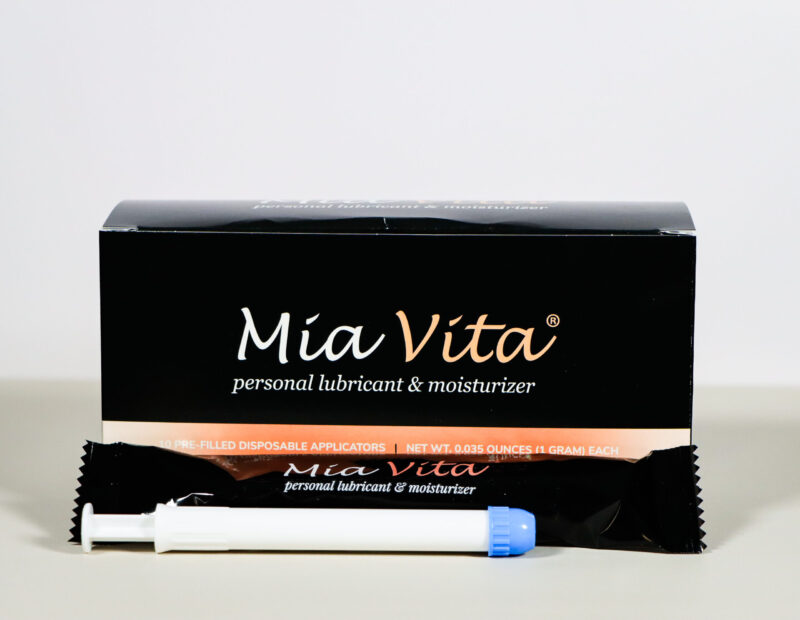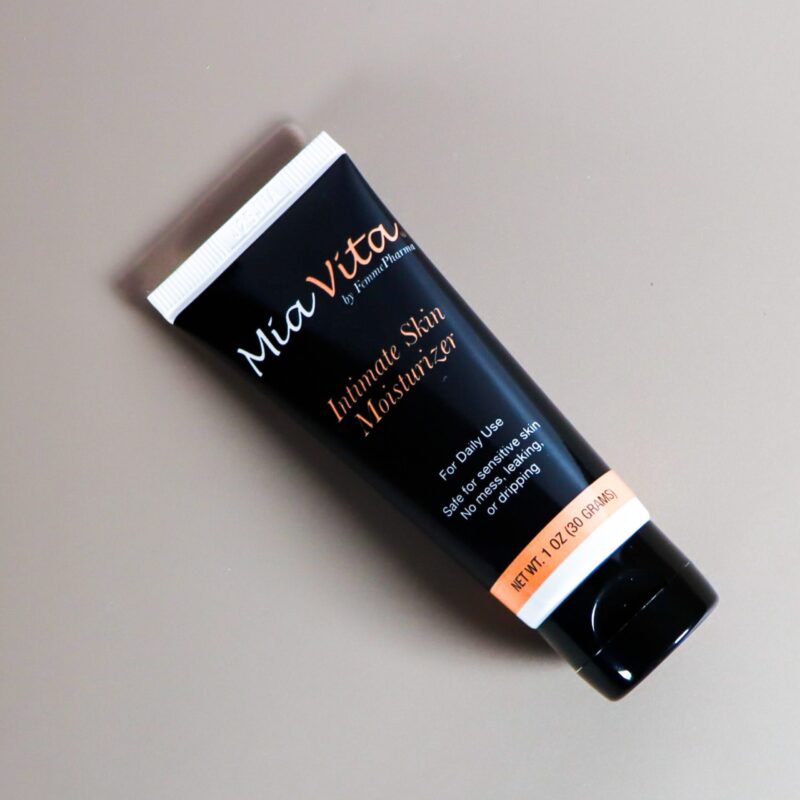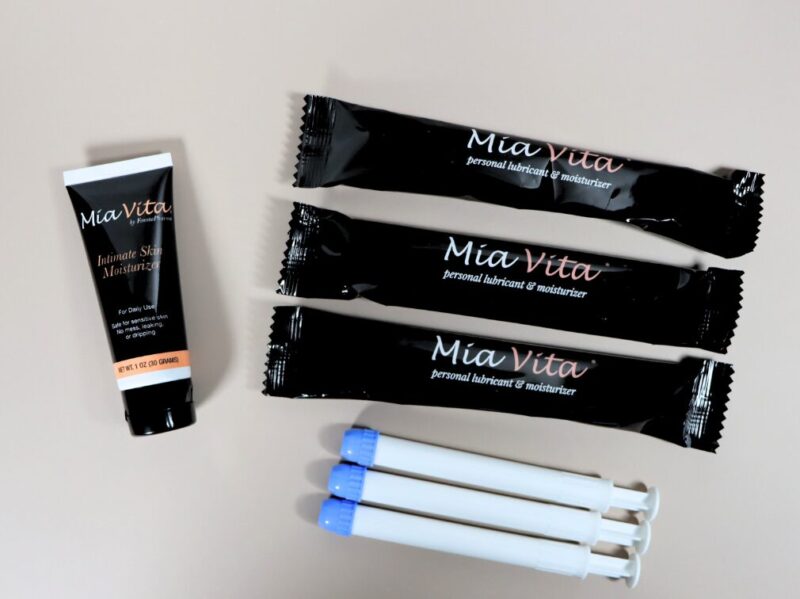Healthcare professionals often present hormone replacement therapy (HRT) as the gold standard to minimize perimenopausal and postmenopausal symptoms—and for good reason. Decades of research and testimony affirm its efficacy in relieving the uncomfortable effects of fluctuating and declining hormones.
However, women with breast or ovarian cancer, a history of cardiovascular disease, and blood clots may be at higher risk for serious side effects and should carefully weigh the risks versus the benefits. Does that mean these women must suffer the symptoms that accompany the menopause transition? By no means! There are plenty of natural and non-hormonal treatments available. And every woman deserves to know the treatment options available throughout perimenopause and postmenopause and to make the best decision for herself.
What you need to know about hormone therapy for perimenopause and postmenopause
As women age, so too do our reproductive systems. Hormone production begins to decline around our late 40s to early 50s. Often, an irregular period signifies you’ve entered perimenopause, a time of transition where your hormones, especially estrogen and progesterone, fluctuate before declining. Then, once you’ve been without a period for a year, you’ve passed the menopause milestone and entered postmenopause, where hormone levels remain low.
However, what often accompanies perimenopause (and sometimes into postmenopause), are uncomfortable symptoms like hot flashes (vasomotor symptoms), fatigue, vaginal dryness, insomnia, and mood swings. Up to 85% of women report perimenopause-related symptoms thanks to these changing hormones. Changes that affect day-to-day routines, the ability to work and care for families, and maintain relationships.
Enter hormone replacement therapy (HRT). HRT comes in two primary forms: systemic or vaginal. Per their names, systemic HRT spreads throughout the whole body, such as birth control, a hormone patch, or ring, and often includes both estrogen and progesterone. Low-dose vaginal HRT, typically an estrogen cream or capsule, is applied to the vaginal area for women who only need vaginal dryness relief. Vaginal HRT is absorbed systemically through a different pathway, but depending on the dose and dosing frequency, systemic absorption may be reduced.
But taking HRT can be a substantial risk for some women. The FDA also notes there may be an increased risk of developing blood clots, heart attacks, and strokes from using HRT. So, where does this leave women who are not good candidates for HRT?
Non-hormonal treatments for common perimenopause symptoms
Though search engines produce myriad treatment options for perimenopause, only specific non-hormonal and natural options are effective for women during the menopause transition. Earlier this year, the FDA released updated guidelines for non-hormonal menopause treatments and detailed treatments to follow and avoid. Below, we’ll dive into three of the most common symptoms of perimenopause and proven non-hormonal options for relief.
Genitourinary syndrome of menopause (GSM)
Quite a mouthful, GSM encompasses any symptom related to the vagina or urinary tract. For women in perimenopause and postmenopause, vaginal dryness, urinary tract infections, and vaginal itching are common unpleasant side effects. As estrogen levels decline, the skin surrounding the vagina becomes drier and thinner. Good bacteria that protect your vagina also start declining during perimenopause, leaving your vulva and vagina more susceptible to infection.
Possible solutions? You can try a vaginal moisturizer with hyaluronic acid that, when used regularly, helps rehydrate your vaginal tissue. Laser therapy, a new treatment option, can help encourage collagen production to strengthen vaginal tissue. Women do report success after laser therapy, though more studies are needed to determine its long-term efficacy.
To reduce urinary tract infections, wear loose-fitting clothing, use fragrance-free soaps and detergents, and drink plenty of water. Cranberry juice and probiotics (of the lactobacillus variety) can also help treat recurring UTIs.
Disrupted sleep
Balanced hormones can assist in a good night’s rest, but when they’re fluctuating—as estrogen and progesterone do during perimenopause—they can throw off your sleep schedule and lead to feelings of restlessness and insomnia, not to mention night sweats. Up to 75% of women experience hot flashes during the day and at night during perimenopause, which can also disrupt sleep.
Natural sleep supplements that include GABA and L-theanine, amino acids that promote calm and deep sleep, can be beneficial during perimenopause. SSRIs (selective serotonin reuptake inhibitors) can also help reduce hot flashes at lower doses than needed when taken as an antidepressant. Bonus? SSRIs can also help mediate mood swings that result from changing hormones.
Some women also find cognitive behavioral therapy (CBT) helps them manage their moods and is proven to help reduce hot flashes and promote better sleep. Other natural treatments for sleep during perimenopause and postmenopause include acupuncture, meditation, and yoga. It’s a good idea to discuss your best options with your healthcare provider, or you can try each method to determine which best alleviates your particular symptoms.
Dry skin
An essential estrogen function? Keeping your skin supple by producing sufficient collagen and oil. So, as estrogen fluctuates and declines during perimenopause, your skin can become thinner and drier. To help your skin stay hydrated, drink plenty of water, eat a healthy, colorful diet, and wear sunscreen anytime you go outdoors.
When you enter postmenopause, your skin can become noticeably less elastic due to a continued decline in collagen. Hyaluronic acid supplements can also ameliorate the appearance of wrinkles. On top of the skincare recommendations during perimenopause, keep an eye out for moisturizers that include polyphenols, a type of phytoestrogen (plant-based estrogen) that can improve skin dryness and thickness. As you navigate perimenopause and postmenopause, remember that you do not need to suffer the symptoms if you are not a good candidate for HRT.
FemmePharma has been helping women navigate menopause for over two decades. No matter where you are in your journey, you deserve to have knowledgeable, intimate healthcare partners to help you feel your best. Explore our other articles, podcast episodes with women’s health experts, and products to ease your transition into menopause.



